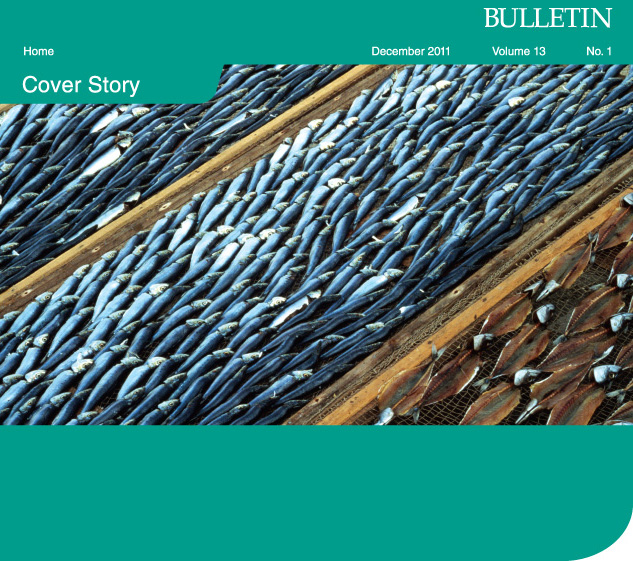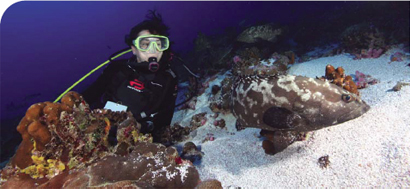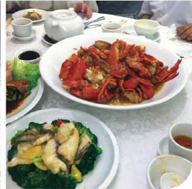
|
|
Hong Kong's history and geography are intertwined with the sea yet there is a lack of awareness of how we can protect this precious resource. A survey led by Professor Yvonne Sadovy of the School of Biological Sciences, executed by the HKU Public Opinion Programme and funded by skin-care company La Mer, found people valued the sea, but did not realize that their consumption of seafood was putting fish populations at risk and that overfishing was a major problem. On the positive side, 82 per cent of 1,000 respondents thought it was important to maintain oceans in a healthy state, either as a food source and/or for; ecosystem interconnectedness". "There was a sense that through the ocean, we are connected to other parts of the world either directly or indirectly. I was surprised because this is a quite abstract thought," she says. But people's awareness of the fish trade was less encouraging. Some 40 per cent of the 1,000 respondents thought of the oceans as an unlimited supply of seafood, a concept that has become outdated in many developed societies. "There is a global crisis in fisheries which is especially severe in Southeast Asia, so this response is something we have to work on," Professor Sadovy says. People's impacts on marine life One of the problems is that people do not see their impacts on marine life. "You go into the supermarket or the wet market and you see fish all the time. How can you know where the fish come from? It's hard to label fish. But if you see that fish appear to be abundant in the market, there is no indication of a crisis. It is a matter of perception and a lack of understanding." "What we're observing globally is that species composition [in markets] is changing and that fish are generally sold at smaller sizes than in the past. But this can't go on forever. We already import from about two-thirds of all countries on the planet to keep up with demand. It's not sustainable." Some organizations, such as the World Wide Fund for Nature (WWF), have produced guides on sustainable sources of fish and Professor Sadovy, who likes to eat fish herself, says consumers need to be more aware of this information. "To address concerns about threats against the ocean, all members of the public need to act, for example by following consumer guides on better choices for seafood. We have options. There is no need to eat threatened species, for example." Actions to protect food fish Her own research has contributed to the knowledge behind such guides. She was instrumental in helping to get the Napoleon / humphead wrasse fish listed under CITES – the first commercial marine food fish to be offered an international level of protection that aims at sustainable trade of the species. She has also set up a website to raise understanding and awareness about species like groupers, an important food fish for Hong Kong that gathers on reefs in 'aggregations' for spawning. These gatherings are predictable and massive and make them easy pickings for fishermen, but deplete the groupers' numbers. While her chief goal is to apply rigorous research and scientific methods to conservation, the success of this requires education and outreach. Students from her department are graduating into jobs in NGOs, government and teaching and helping to bring the message out. Public awareness efforts, which she has been involved in with WWF and Ocean Park and now La Mer, are also paying off. A desire to do more The survey found people want more education about oceans and marine life, not only for oceans but for themselves and their children. Half of those who said they would like to do something to protect the ocean (90 per cent of respondents) did not know what they could do. "People are getting interested and they're more willing to act, but they need to be shown what they can do. They need to understand they are part of the solution," she says. By getting more information out about threatened species and oceans, the options will become clearer. For more information, see the websites on brown grouper: http://www.scrfa.org and WWF's Sustainable Seafood Initiative: http://www.wwf.org.hk/en/whatwedo/footprint/seafood/sci/ |
 |
 |
| Back | ||